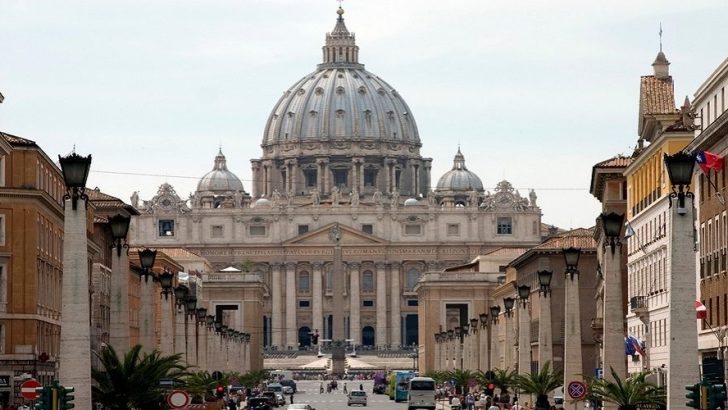Contract hitch halts audit of Vatican’s finances
The first ever audit of Vatican finances by a major global firm has been cut short after – it is understood – the Holy See’s Secretary of State, Cardinal Pietro Parolin, raised concerns.
The audit by Pricewaterhouse Coopers (PwC) was “suspended immediately” on April 12, it has been revealed, when Archbishop Giovanni Angelo Becciu wrote to all Vatican entities revoking any letters permitting the sharing of financial data with the company.
The firm was contracted for about €2.7 million last December to collect materials in March, review it over March, April and May, and present a statement to the Vatican’s Council of the Economy in June; this work is now on hold.
It is believed that Cardinal Parolin’s concerns relate to the nature of the contract rather than the principle of greater transparency, and that the contract’s suspension was discussed by Pope Francis’ Council of Cardinal Advisors and approved by the Pope.
Need to confront drug-use
The Holy See has reiterated the Church’s opposition to the use of illegal drugs and the legalisation of narcotic use.
Addressing a special session of the UN General Assembly on the world drug problem, Archbishop Bernardito Auzo quoted how Pope Francis has said “a reduction in the spread and influence of drug addiction will not be achieved by a liberalisation of drug use”, maintaining that “it is necessary to confront the problems underlying the use of these drugs, by promoting greater justice, educating young people in the values that build up life in society, accompanying those in difficulty and giving them hope for the future”.
Emphasising the importance of the family as “the cornerstone of prevention, treatment, rehabilitation, reintegration and health strategies”, Dr Auzo said that “when a member is addicted, the whole family suffers” and that “the negative effect of illicit drug use on the family extends to the community, and leads ultimately to the destabilisation of civil society”.
Salvation is history unfolding
Salvation is not a momentary event but a history that unfolds day by day, amid successes and failures, until the final encounter with God, Pope Francis has said.
Preaching in the Vatican’s Casa Santa Marta on Thursday, April 21, the Pope explained how the Apostles’ earliest preaching presented the coming of Christ as the culmination of God’s journey with Israel.
This journey should not be forgotten, he said, recalling how remembrance is repeatedly advised in Scripture. “It is important to turn back to see how God saved us, by following, with the heart and mind, the path with these memories and in this way to arrive at Jesus,” he said, stressing how Jesus himself, in giving us his body and blood, said, “Do this in memory of me”.
Vatican’s ‘duty’ to speak of identity
Religious identity is key to the identity of national majorities, and the Vatican has a duty to emphasise that fact, the Holy See’s permanent representative to the Organisation for Security and Cooperation in Europe (OSCE) has said.
Msgr Janusz S. Urbańczyk explained that the Holy See has “a distinctive duty” to speak of this fact, “not for purely partisan reasons nor because it is uninterested in other aspects of the issue, but because it feels that religion has left, and continues to leave, a mark in the history, identity, culture and social life of our societies and communities”.
He argued that “educational programmes should be developed and strengthened in order to promote a better understanding and respect for different cultures, ethnicities and religions”.



